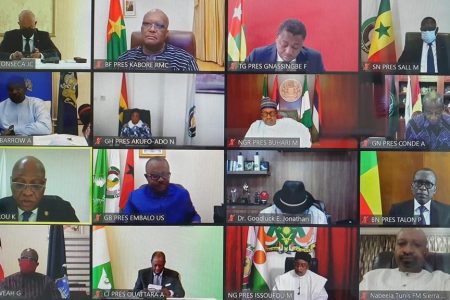By Kester Kenn Klomegah
In the West African region, Mali is the largest by territory. Lying in the Sahel zone, this landlocked country with an estimated 19.5 million population, is supported by agriculture and little industry. Cotton is the country’s largest crop export and is exported to Senegal and Côte d’Ivoire.
Eighty percent of Malian workers are employed in agriculture. Approximately 15% of Malian workers are employed in the service sector. Seasonal variations lead to regular temporary unemployment of agricultural workers. But, the emergence of gold as Mali’s leading export product since 1999 has helped mitigate some of the negative impact of the cotton and crisis in neighboring Côte d’Ivoire.
With politics, Mali has a constitutional democracy governed by the Constitution of 12 January 1992, which was amended in 1999. The constitution provides for a separation of powers among the executive, legislative, and judicial branches of government.
Mali’s foreign policy orientation has become increasingly pragmatic and pro-Western over time. Since the institution of a democratic form of government in 2002, It’s relations with the West in general and with the United States in particular have improved significantly. Mali has a longstanding yet ambivalent relationship with France, a former colonial ruler. It was active in regional organizations such as the African Union until its suspension over the 2012 Malian coup d’état.
That, however, the constitutional regime under President Ibrahim Boubacar Keita came to an abrupt end when the government was forced to resign on August 18, 2020. The primary reasons are that the country persistently faces numerous development challenges including fractured economy combined with deep-rooted corruption leading to dissatisfaction among the populace.
Over the years, reform policies have had little impact on the living standards, majority highly impoverished in the country. As a developing country, it ranks at the bottom of the United Nations Development Index (2018 report).
Popular unrest began on June 5 following irregularities in the March and April parliamentary elections, including the arrest of opposition leader Soumaila Cissé. It resulted between 11 and 23 deaths following the protests that took place from June 10 t0 13, according several reports. And that endless protests finally culminated into the overthrow of the government by members of the military led by Colonel Assimi Goïta and Colonel-Major Ismaël Wagué in Kati, Koulikoro Region on 18 August.
The basic question is next for Mali? The Economist article of Aug. 19, titled “What next for Mali?,” which is enclosed here offers quick answers.
The United Nations, African Union and Economic Community of West African States have condemned the seizure of political power by the military. For example, United Nations Secretary General Antonio Guterres, spoke out against the coup as well saying that the situation be returned to normal under the elected civilian government in Mali.
In addition, an official statement was issued by the AU Commission Chair on the situation in Mali. It says in part: “The AU Chairperson calls on the Economic Community of West African States (ECOWAS), the United Nations and the entire international community to combine collective efforts to oppose any use of force as a means to end the political crisis in Mali.”
The opposition groups have to implement or honor its promise to hand power back to civilians, after mounting pressure from neighboring countries over fears of even more instability in the war-torn nation. Now they have given the current leaders to return the country to civilian rule by September 15.
During an extraordinary ECOWAS summit on Mali, President Mahamadou Issoufou had indicated that the sanctions would be “lifted gradually depending on the implementation” of measures allowing a return to civilian rule. They further urged that efforts taken to resolve outstanding issues relating to sustainable development and observing strictly principles of democracy.
Eight heads of state including Senegalese President Macky Sall, Ivory Coast President Alassane Ouattara and Guinea-Bissau President Umaro Sissoco Embalo were present at the opening of last summit.
Ghana’s President Nana Akufo-Addo was elected as the new Chairman of Economic Community of West African States (ECOWAS) at the 57th ECOWAS Summit held in Niamey, capital of Niger. The Ghanaian President takes over from President of the Republic of Niger, President Mahamadou Issoufou. It follows that Ghana has to lead ECOWAS to continue finding a solution to the political crises in Mali.
Despite the fact that both international and regional organizations have utterly denounced the coup, what follows are negotiations over the transitional arrangements and the timetable for new elections. This will not be straightforward, though. Beyond condemnation and everything, the primary task for ECOWAS is to ensure peace and stability in Mali and the entire West Africa.










